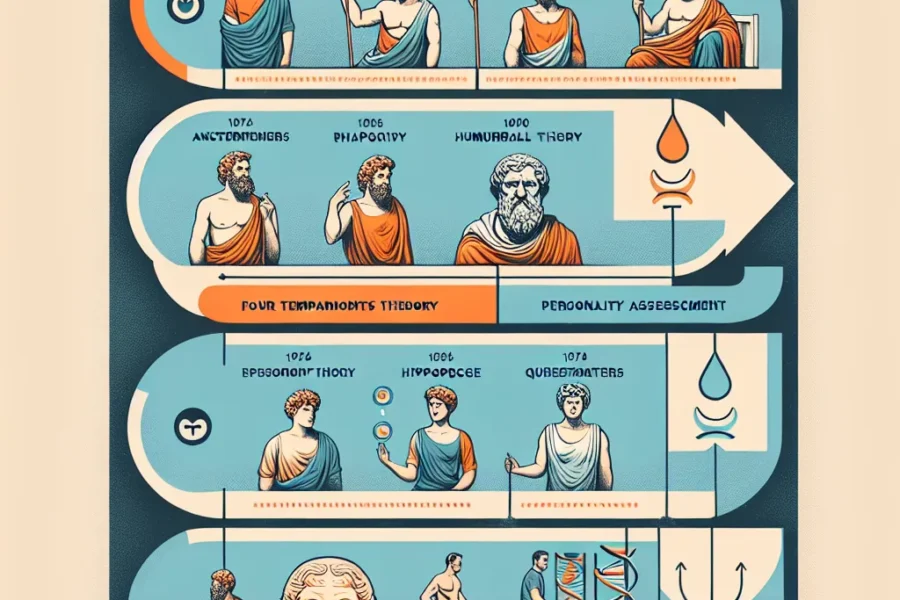Carl Rogers and the Development of Humanistic Psychology
Carl Rogers stands out as a towering figure in the field of psychology, primarily known for his groundbreaking work in the development of humanistic psychology. As one of the most influential psychotherapists of the 20th century, Rogers revolutionized the psychotherapy landscape by introducing a client-centered approach that emphasized empathy, personal growth, and self-directed change. This article explores the life of Carl Rogers, the core principles of his humanistic approach, and its impact on the study and practice of psychology.
Born on January 8, 1902, in Oak Park, Illinois, Carl Ransom Rogers was the fourth of six children in a conservative, close-knit family. Originally enrolling at the University of Wisconsin as an agriculture major, Rogers later shifted his focus to religion with the intention of becoming a minister. However, following a trip to Beijing for an international Christian conference, he began to question his religious views and ultimately decided to pursue a career in psychology.
Rogers completed his PhD in clinical psychology at Columbia University in 1931, during which he was influenced by the work of early American psychologists such as John Dewey and William James. These formative years shaped Rogers’ views on the human condition and individual potential for growth and change, paving the way for his contribution to the emergence of humanistic psychology.
Humanistic psychology, often referred to as the “third force” in psychology, arose in the mid-20th century as a response to the limitations of the two dominant psychological perspectives of the time: psychoanalysis and behaviorism. While Freudian psychoanalysis focused on the unconscious mind and past traumas, and behaviorism centered on observable behaviors and external stimuli, humanistic psychology offered a more holistic view of the individual, emphasizing conscious experiences, personal responsibility, and self-actualization.
Carl Rogers introduced his person-centered approach, the cornerstone of humanistic psychology, in his seminal book “Client-Centered Therapy” published in 1951. This approach diverged from the therapist-directed methods and diagnostic labels prevalent in psychotherapy. Instead, Rogers advocated for a supportive environment in which clients could explore and understand their feelings and thoughts without fear of judgment. He believed that the therapeutic relationship was of paramount importance and that the therapist’s role was to provide empathy, congruence, and unconditional positive regard — elements that form the basis of a growth-promoting climate.
The principle of unconditional positive regard is a vital component of Rogers’ framework. This concept entails the therapist’s acceptance of the client as they are, without conditions or evaluations. By fostering an atmosphere of genuine acceptance, clients are encouraged to express their true selves and explore their experiences without fear of condemnation. Rogers’ belief in the intrinsic value of each human being and their capacity for self-directed growth was a radical departure from the deterministic viewpoints of his contemporaries.
Another key principle of Rogers’ approach is the idea of congruence. This refers to the therapist’s authenticity and openness during therapy sessions. By being genuine and transparent, therapists model a form of communication that encourages clients to be honest with themselves. This congruence between inward feelings and outward expressions promotes trust and facilitates change in the therapeutic relationship.
Empathy, the third pillar of Rogers’ therapeutic model, involves the therapist’s ability to understand the client’s experience from their perspective. Rogers posited that empathy is not simply about listening; it’s about conveying a deep understanding of the client’s feelings and thoughts. This empathic understanding helps clients feel heard and supported, fostering an environment where they can begin to unravel complex emotions and develop a greater understanding of themselves.
The impact of Carl Rogers’ work on psychology cannot be understated. His theories on self-concept, self-actualization, and the fully functioning person contributed to a broader understanding of human behavior and potential. The self-concept refers to the organized, consistent set of perceptions and beliefs about oneself. Rogers believed that discrepancies between one’s self-concept and experiences can lead to psychological tension. Consequently, a major goal of person-centered therapy is to help clients achieve congruence between self-concept and experience, ultimately leading to a more authentic and fulfilling life.
As people grow and adapt, Rogers believed they move toward becoming a “fully functioning person.” This is characterized by openness to experience, a trust in one’s own decision-making abilities, and a willingness to live fully in each moment. Therapists utilizing Rogers’ approach aim to support clients in this journey by providing the conditions necessary for personal growth.
Humanistic psychology, and Rogers’ contributions to it, laid the foundation for numerous therapeutic interventions and educational models that prioritize the development of the whole person. These interventions have been applied in diverse settings, from individual counseling and group therapy to educational programs that emphasize student-centered learning.
Rogers’ influence extends beyond the realm of psychotherapy; his ideas have permeated into the fields of business, conflict resolution, and interpersonal relations. The application of principles like empathy, authentic communication, and individual empowerment has led to more compassionate and effective leadership and management styles.
In the contemporary world, Carl Rogers’ legacy lives on, his humanistic principles still resonant in modern psychological practices. As mental health gains greater emphasis in society, the need for approaches that promote personal growth, self-acceptance, and human potential becomes increasingly apparent. The person-centered approach has inspired a wide array of therapies that share its core values, including experiential therapy, emotion-focused therapy, and positive psychology.
Despite the passage of time, the humanistic approach to psychology remains as relevant as ever, continuing to influence new generations of therapists and clients alike. Carl Rogers’ emphasis on the unique experience of each individual and the belief in the human capacity for self-healing and growth serve as a beacon of optimism in the often complex and challenging field of mental health.
In summary, Carl Rogers’ pioneering work in humanistic psychology has had a profound and enduring impact on the field. His dedication to understanding the human condition and commitment to nurturing individual potential continue to transform the ways in which psychological services are provided and received. By championing the value of empathy, congruence, and unconditional positive regard, Rogers has left behind a powerful legacy that enriches the lives of those seeking to understand and improve the human experience.



Leave a Comment